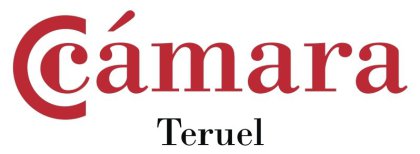REGISTRATION FEE: 125 euros.
Vacancies permitting, a reduced fee of 95 euros will be made available to suitably accredited applicants who are university students, unemployed persons, pensioners, retirees, and University of Zaragoza employees and collaborators such as practicum supervisors, as well as to family dependents or accompanying persons of registered participants.
THE FOUNDATIONS OF HUMANITY: Comparing the Technology, Culture and language of Ancestral Humans and Extant Apes
To provide an overview of the complex behaviour of modern humans, and consider how it differs from that of non-human Primates and our hominin ancestors.
To describe and analyze how modern humans resolve physical and social problems, and the extent to which comparable strategies are employed by other Primates facing analogous problems.
To discuss aspects of cognitive versatility, planning, theory of mind, procedural memory, symbolic activities, culture, language, and cerebral evolution.
To investigate the communication systems of human beings and other nonhuman animals, and consider whether language is a key component of our cognitive achievements.
The general aim is to introduce participants to significant aspects of the evolutionary pathways that have led to the complex brains and behaviours of great apes and humans.
Wednesday, September 6th
8:45-9:00h. Arrival and registration
9:00-10:30h. Tool-making and use in great apes and humans: a critical reassessment. Héctor M. Manrique.
10:30-11:00h. Coffee break. Hang your poster!
11:00-12:30h. Stone tools and the origins of human technology: affordances and constraints. Michael J. Walker.
12:30-13:30h. Round table discussion.
13.30-15.00h. Lunch break.
15:00-16:00h. Short communications.
16:00-17:30h. The stone-knapping puzzle: maintaining work in hand while keeping outcomes in mind - the importance of memory in early humans. Michael J. Walker.
17:30-18:00h. Coffee break.
18:00-19:30h. A window into the brain of our closest extant relatives: prospective and mentalistic abilities. Héctor M. Manrique.
19:30-20:30h. Round table discussion.
Thursday, September 7th
9:00-10:30h. How numbers gave rise to abstractive thinking and modern symbolic thought. Frederick L. Coolidge.
10:30-11:00h. Coffee break.
11:00-12:30h. The evolution of modern thinking: the two major leaps in cognition. Frederick L. Coolidge.
12:30-13:30h. Round table discussion.
13.30-15.00h. Lunch break.
15:00-16:00h. Short communications.
16:00-17:30h. Primate communication: signals, intentions, and meaning. Juan Carlos Gómez.
17:30-18:00h. Coffee break.
18:00-19:30h. Social cognition in primates: evolving natural theories of mind. Juan Carlos Gómez.
19:30-20:30h. Round table discussion.
Friday, September 8th
9:00-10:30h. How and why Noam Chomsky is wrong about the evolution of language: How did language evolve? Frederick L. Coolidge.
10:30-11:00h. Coffee break.
11:00-12:30h. Knowledge without language: an EvoDevo approach to the origins of thought and intelligence. Juan Carlos Gómez.
12:30 a 13:30. Poster presentations.
15:00h. Those who are interested will have the opportunity to visit Dinópolis, a nearby paleontologic museum with fascinating dinosaur exhibits.
Prof. Dr. Michael Walker, Emeritus Professor of Physical Anthropology, Department of Zoology & Physical Anthropology, University of Murcia.
Prof. Dr. Frederick L. Coolidge. Full Professor at the School of Psychology, University of Colorado at Colorado Springs, USA.
Prof. Dr. Juan Carlos Gómez. Reader at the School of Psychology and Neuroscience, University of St. Andrews, UK.
Prof. Dr. Héctor Marín Manrique, Departamento de Psicología y Sociología, Universidad de Zaragoza.




